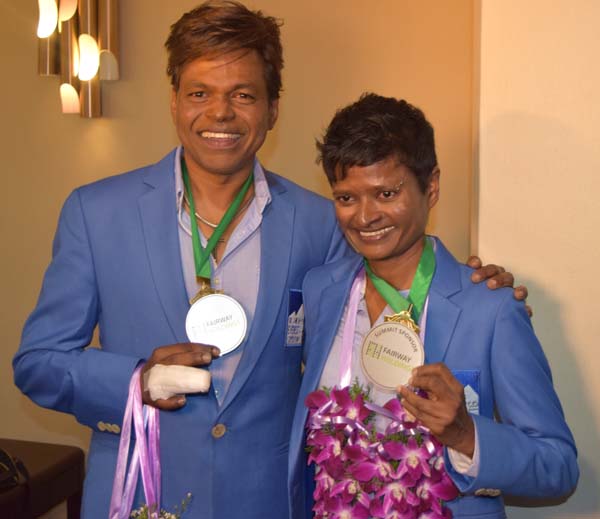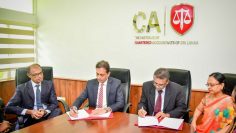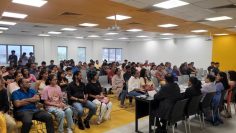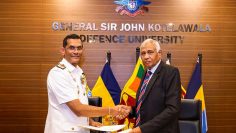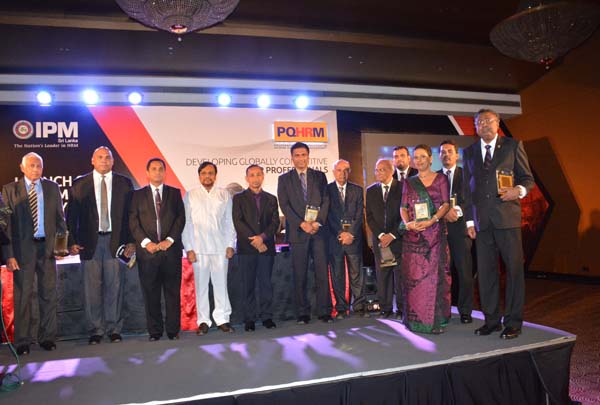
IPM Re-launches PQHRM Programme to Cater to Changing HR Needs
IPM Sri Lanka – the Nation’s leader in human resource management – re-launched the IPM Professional Qualification in Human Resources Management (PQHRM) which is the premier HR qualification for human resources professionals, taking into consideration the fast changing needs of the dynamic business and HR environment. The event was held at the Hotel Galadari, Colombo on Tuesday 31st May with the State Minister of Higher Education – Hon. Mohan Lal Grero as the Chief Guest, Sriyan de Silva Wijeyeratne – Managing Director/CEO, Textured Jersey Lanka Limited as the Guest of Honor, Members of the IPM Sri Lanka Council including President – Rohitha Amarapala, and other distinguished invitees.
“IPM’s PQHRM is a much sought after and recognized qualification for professionals in human resources management. As the leading professional body for human resources management, we always strive to ensure that our members and professionals are globally competitive, and hence be equipped with the most modern knowledge and skills so that they are in a position to contribute as much value to the organizations that they are attached to” said Rohitha Amarapala-President IPM Sri Lanka.
The revamped PQHRM followed a detailed and in-depth study of the HR and business eco-system which included obtaining feedback from all stakeholders in the HR landscape such as potential employers in the private and public sectors, academia, students, past students, business leaders, staff, HR professionals and consultants.
“The prime objective of the PQHRM is to create well rounded HR professionals with a distinct difference and an in-depth knowledge of HR strategy and its linkage to business strategy who will be in a position to add value to the organization in the short and long term while being a driving force in the formulation of corporate strategic objectives at a senior management level” said Janaka Kumarasinghe, Co-Chairman – PQHRM Syllabus Steering Committee (PSSC).
The IPM PQHRM is a professional qualification with a distinct difference. It is a 90 credit programme matching with upcoming Sri Lanka Qualification Framework. The revamped PQHRM curriculum will cover subject matter and learning around 8 pillars of Key HR Drivers, HR integration with business strategy, Industrial law & legal framework, Technology drivers including social media, Research methodology, Contemporary HRM tools, Entrepreneurial leadership and Organizational development & behavior. In order to meet this objective, the revamped PQHRM programme will focus and develop on the 3 key domains attuned towards enhancing attitude, skill and knowledge in HR and business strategy which will be addressed and assessed at 4 levels. These 4 levels will be the Operational Level (to understand the HR operation in pertaining to all key result areas of HRM, in order to assist or support the HR department to provide/deliver HR services to the staff), Managerial Level (managing the operation by attending to do the planning, organising, controlling and execution of HRM in all key result areas as per the need of the organization, ensuring the HR service delivery), Strategic Level I (Strategic thinker within HR, define HRM challenges in the organization and come up with strategic and competitive HR solutions/practices with the objective of meeting demand of the management, mainly solutions creations and implementation) and Strategic Level II (HR and Business knowledge, HRM transformation as a business partner with the knowledge of developing and changing the organisation and its culture, organizational behaviour from the cornerstone of organizational capability, drive HR profession with leadership and personal credibility).
“To ensure that the PQHRM programme matched or exceeded other professional local/international programmes and qualifications available, the PSSC went through a well structured benchmarking exercise as well” said Samitha Perera, Co-Chairman-PSSC.
The deliverables of the new PQHRM are aligned to new modes of teaching and student centric learning methods such as workshops, HR laboratories, field visits, case studies, group work, presentations, research, case studies, viva and videos will be used apart from the lectures while assessments are based on Bloom’s taxonomy in that multiple methods of evaluation using examinations, workshops, presentations, case study evaluations, viva voce, presentations, workshops etc. IPM recognizes the need for people management competency requirement for all professions in any given level in the organization. Hence the new syllabus of PQHRM gives an opportunity for other professionals to acquire this competency through a Diploma in HRM Studies at Level II.
IPM Sri Lanka keeps pace with the new trends and concepts in HR by engaging continuously with the business community to share experiences, thoughts and insights in order to enrich and enhance the HR profession. It actively encourages and promotes members’ participation at international conferences and fora to provide relevant exposure, build networks and conduct research into areas of interest to the HR profession in Sri Lanka.
IPM was founded in 1959 and was subsequently incorporated by an Act of Parliament in 1976. IPM is affiliated to the Asia Pacific Foundation of Human Resources Management and also to the World Federation of People Management Association. IPM, being a professional institute is also a constituent member of the Organization of Professional Associations [OPA] Sri Lanka. Currently IPM comprises of over 1000 Professional Members who serve in both public and private organizations.


